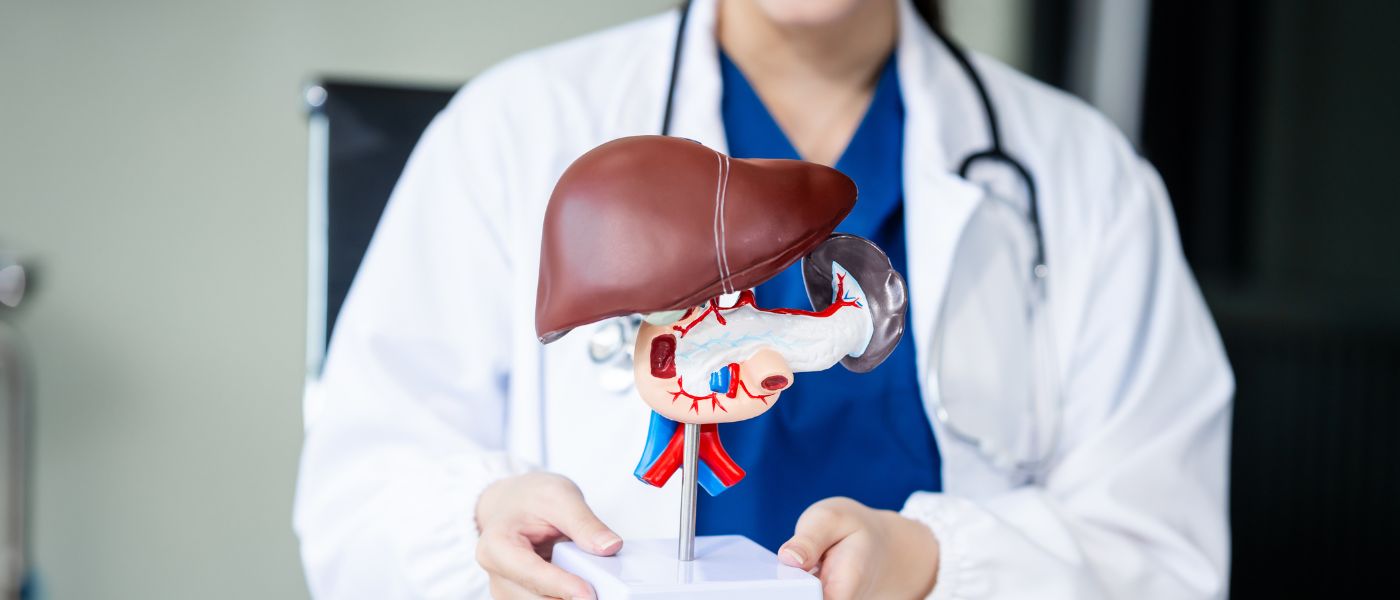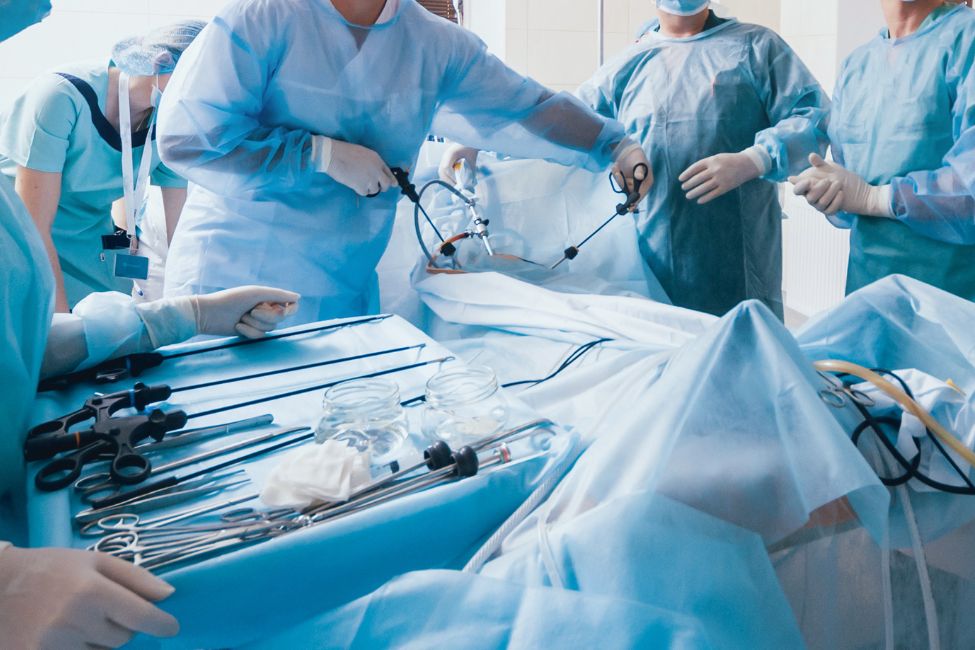You cannot live without your liver. It is a vital organ. It works 24/7 to metabolize and remove toxins that we ingest every day, including alcohol, the overconsumption of which can cause cirrhosis – damage to the liver. The liver also removes ammonia and bilirubin from the blood and effectuates the development of certain enzymes that are critically important for ongoing health.
Liver Tumors
Liver tumors can be both benign and malignant (cancerous). They are typically found incidentally on radiographic studies such as Ultrasound (US) or Computed Tomography (CT) scan. They rarely cause symptoms other than pain but occasionally can cause biliary obstruction resulting in jaundice (yellowing of the skin). Once identified, the mass can typically be characterized as benign or suspicious for cancer with imaging studies but some do require a biopsy. Benign lesions are usually not treated with surgery unless the patient is symptomatic or there is a risk of the benign lesion becoming cancerous. If the lesion is cancerous, the next steps would be diagnosis and assessing if the cancer has spread.
Diagnosis
There are several types of liver, gallbladder, and bile duct tumors. There are also other types of cancer that can metastasize (spread) to the liver. Each of these lesions have different characteristics that allow physicians to diagnose and treat them properly. The initial diagnostic workup is typically imaging. Usually an ultrasound or CT scan but occasionally an MRI will be required. Once the imaging has been reviewed by a radiologist, the appropriate biopsy can be obtained. The biopsy for liver lesions is usually a CT guided biopsy which is a procedure that occurs in radiology and patients are discharged the same day. In the case of bile duct tumors, an endoscopic ultrasound (EUS) or Endoscopic retrograde cholangiopancreatography (ERCP). This is also an outpatient procedure. Once the biopsy is obtained, it will be reviewed by a pathologist to determine the type of lesion.
Surgical Procedures
Open – Open operations are commonly performed for liver lesions. These require large incisions on the upper abdomen. These incisions can be painful and require longer hospital stays for recovery. Despite this, open operations do offer excellent visualization and are preferred for larger liver tumors
Robotic – The advent of the robotic surgical system has given surgeons the ability to perform highly complex operations in a minimally invasive fashion that would otherwise be impossible. These operations reduce hospital stays, have decreased pain, and overall decreased hospital costs. MIIS has extensive robotic training and will perform most cases robotically if possible.
Laparoscopic Options
There are multiple options for removing the liver. However, patients will most likely prefer the immediate benefits of minimally invasive laparoscopic surgery, such as smaller incisions, less blood loss, and often shorter procedure and recovery times. Both an open surgery and a minimally invasive surgery to remove a liver tumor will require general anesthesia and remain in the hospital for one or more days after the surgery.
Not all liver cancers can be treated using a partial hepatectomy. Advanced imaging such as CT or MRI can tell us if the tumor is too large or has spread to other areas of the body. Cirrhosis of the liver also reduces its ability to perform vital functions; therefore, removing part of this less efficient liver may not be possible.
There are risks associated with removing a liver tumor, and testing will help reveal factors that need to be assessed before surgery is pursued. Your surgeon can review your results and recommend the best course of action. Contact us to schedule a consultation with our surgeons.
Specific Operations MIIS offers
Parenchymal Sparing Hepatectomy
This approach can be utilized for single or multiple lesions of the liver. We approach the resection by taking an adequate amount of liver tissue for appropriate oncologic margins but minimize the detrimental effect on liver function. This is our preferred approach to liver surgery and will perform if possible.
Formal Hepatectomy
These resections are reserved for patients with multiple lesions in either the left or right lobe of the liver. We can resect (remove) the right or left lobe in its entirety and the patient will do well as long as they have enough functional liver in the remnant (typically 30% or more). This can be determined with preoperative imaging.
ALPPS Procedure
This procedure is performed in patients who do not have sufficient liver for a formal resection. We ligate the portal vein and transect the parenchyma but leave the hepatic vein. This allows the remnant liver to enlarge. The diseased liver is then removed in 4-6 weeks.
Robotic or Laparoscopic Assisted Ablation
Interventional radiology is typically able to perform most ablations but occasionally the lesions are too close to other structures and require a surgical approach. Surgeons can mobilize the liver and allow for ablations of lesions in locations the interventional radiologists are unable to access.



